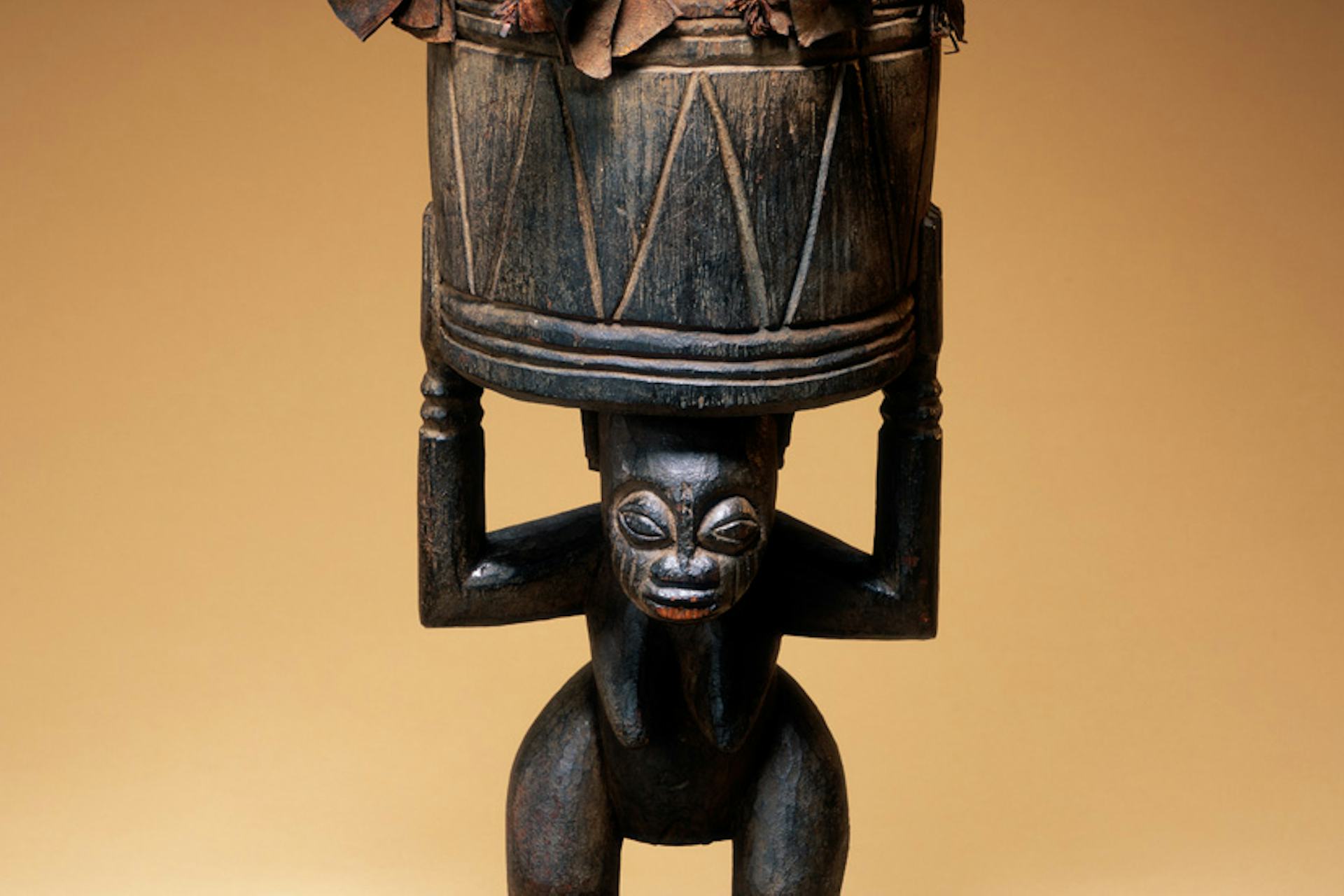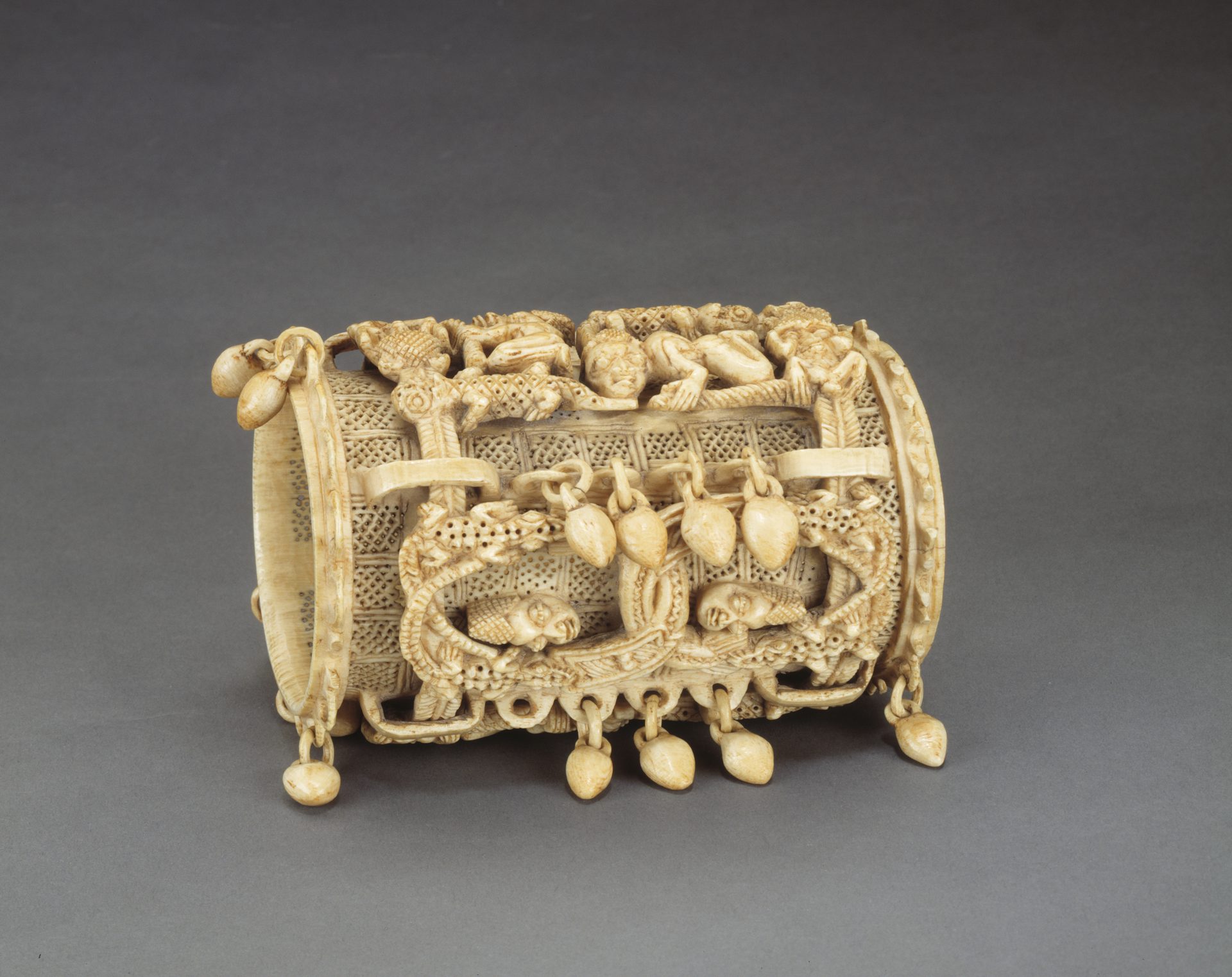Ọbatala

The ogbin obatala drum belongs to the Ijebu-Yoruba peopple of Nigeria.
Fowler Museum at UCLACopyrightOverview
Obatala, also known as Orisa-nla, is the Yoruba god of creation, purity, and creativity and the deity responsible for forming children in the womb. He is one of the oldest and most important of the oriṣas—the gods of the Yoruba pantheon.[1] The Supreme Being, Olorun (also known as Olodumare), chose Obatala to create the earth and human beings.
Obatala is the second-in-command of the oriṣas, after Olorun. As such, he is widely celebrated and worshipped throughout Yorubaland. In addition to serving as the god of creativity, purity, and creation, he is also the protector of individuals with disabilities and the god of wisdom, morality, strategy, intelligence, and silver.[2]
In well-known hymns to Obatala, the god is said to make his worshippers “strong and healthy.”[3] He also supports his worshippers by making them prosperous and numerous. As a sculptor of human beings, he is especially revered for giving children to women who cannot conceive. In his capacity as the god of purity, Obatala is associated with cleanliness and the color white.
Pronunciation
English
Yoruba
Obatala Ọbàtálá Phonetic
IPA
aw-ba-ta-la ɔ̄.bà.tá.lá
Obatala Creates Humanity

An ivory bracelet carved with hunchback-like figures. The Yoruba viewed hunchbacks as touched by Obatala, the Sculptor and Creator. Yoruba artist (16th century).
Smithsonian Open AccessPublic DomainBefore the creation of the world, the universe consisted only of sky and water. There was neither an earth nor a sun. In this primordial state, the gods dwelt in the heavens. According to Yoruba cosmology, Olorun eventually chose Obatala to create the earth and all of its inhabitants.
Obatala suggested to Olorun that the world would be better if there were solid land on which both the oriṣas and other life forms could live. To create this land, Obatala descended to earth on a golden chain and poured sand on the water. He then set a dove and a chicken on the sand, and the birds scattered the newly formed earth. Obatala named this site Ife.
Obatala asked Olorun to illuminate the earth, so Olorun created the sun. Obatala then decided to create new beings. He formed the first humans from clay, and Olorun gave them life.[4] By this point, Ọbatala was thirsty after all of his labors, so he drank some palm wine and quickly became intoxicated.[5]
Upon sobering up, he discovered that he had malformed some of his creations. Consumed by guilt, he decided to become the protector of his misshapen creations—hence his role as protector of the disabled. From that day forward, Obatala gave humanity the tools they needed to survive and thrive.[6]